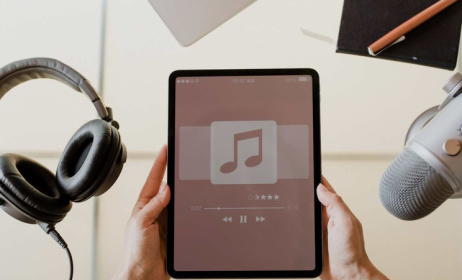COVID-19: Deezer sees spike in romantic content
A Deezer global study has revealed that 37% of respondents are playing more romantic music.
 Deezer's latest global study has revealed a number interesting listening trends since the start of March.
Deezer's latest global study has revealed a number interesting listening trends since the start of March.
The study, which was based on 11 000 participants around the world, provides an analysis of music listening behaviour during the coronavirus (COVID-19) pandemic. Men took the lead, with 41% streaming romantic audiobooks and music compared to 33% of women.
Relationship podcasts on Deezer have seen a 145% increase in daily active users worldwide since the beginning of March. The report also found that users have been listening to music twice as much (40 minutes) compared to the average (20 minutes) since the start of March.
“The rise in romantic music during lockdown could be driven by increases in people’s oxytocin levels,” Dr Sarita Robinson, principal lecturer in the school of psychology in the University of Central Lancashire in the UK, said. “During times of stress we are more likely to produce the love hormone oxytocin, and this in turn leads to more ‘tend-and-befriend’ behaviours.”
Listening behaviour also varied according to regions. At 61%, Middle Eastern and North African listeners tend to listen to more romantic audio content in comparison to the US (54%) and Brazil (43%).
Europeans are less likely to listen to romantic content, with the French leading at 33%, and Germany and Britain following at 23% and 18% respectively.
There are also generational differences shown in the data. Almost half (45%) of millennials between 25 to 34 years use romantic audio content compared to 46% of generation Xs and 19% of baby boomers.
Income can also play a part in the content consumed. Over two thirds (67%) of respondents on higher incomes are using audio content to set a romantic mood, compared to just 27% of streamers on lower salaries.
Not everyone is in high spirits according to the study. A fifth of generation Zs (19%) and 17% of millennials have experienced a significant downturn in their mood since the first two weeks of lockdown, compared to just 7% of those over 55.
The younger generations are also more likely to be “depressed” during the lockdown, compared to 18% of 18-24 year olds and 9% of 55 year olds. People aged 45-54 seem to be coping better and mainly listen to relaxing audio content (59%).
“Music can help lift us up when we are feeling lonely. Audio content is helpful as it breaks the silence which can become overwhelming," Robinson said. "Podcasts and audiobooks act as a distraction and fill the time until we have the next phone call or video chat.”
In addition, who you live with can play a part in how isolated you feel during lockdown. Individuals living with grandparents, many of whom are considered vulnerable, are most likely to stream music to stop feeling lonely (41%), compared to 33% of people who live alone. Nearly 31% of adults with kids in the house are also using music to avoid being lonesome during the lockdown.
























Commentaires
s'identifier or register to post comments